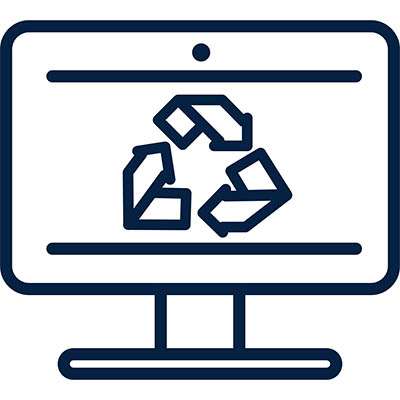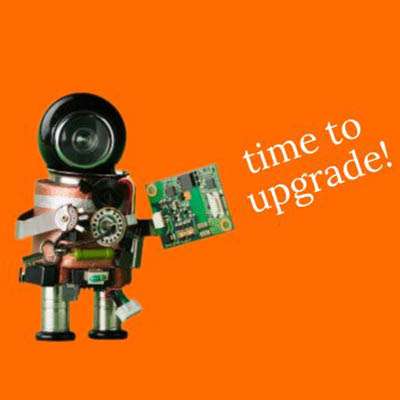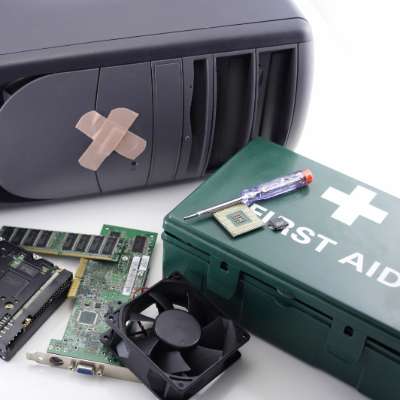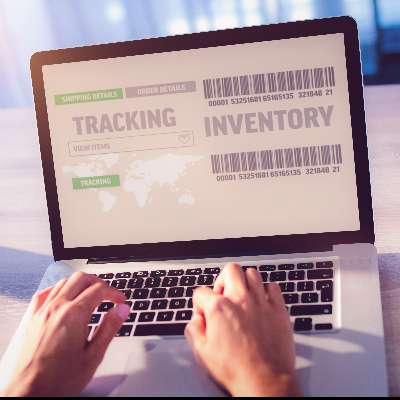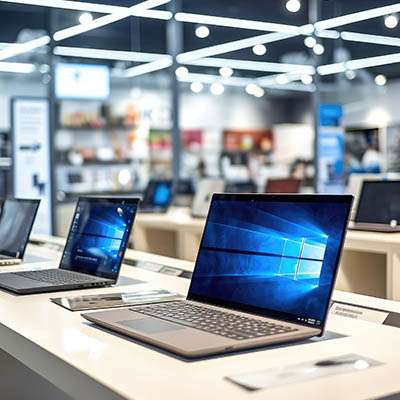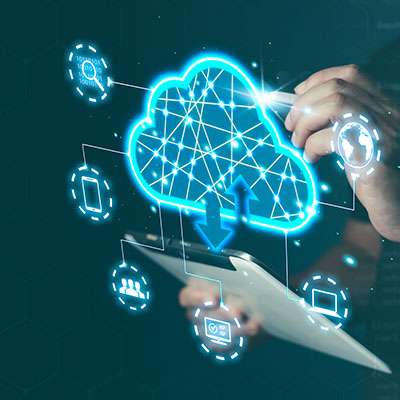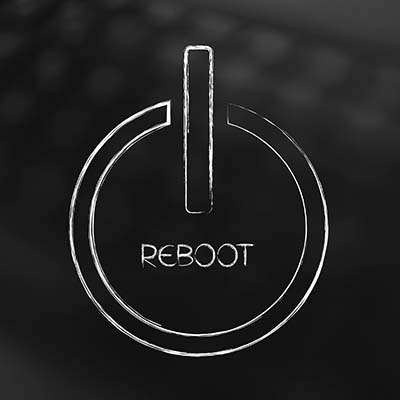Technology doesn’t last forever, so what would you do if your keyboard or computer monitor died tomorrow? Some might just throw the technology in the trash and not think twice about it, but that’s the exact opposite of what you should do. Instead, Macro Systems urges you to go through the proper channels to properly dispose of your old electronics—if not for the environment’s sake, then for your business’.
Macro Systems Blog
You should want your team to be ready and able to accomplish as much as possible. So, when a team member approaches you with a request for a better laptop or a dual-monitor setup and the wish to do more with their time, you should agree. That being said, there may be that little voice in the back of your head, whispering, “Was that a wise investment?”
It can be hard to balance the need for employee satisfaction with your budgetary restrictions, but it must be done. Listed below are the considerations you need to make… as well as the pitfalls that must be avoided.
For decades, the business phone was a tether, firmly rooting you to your desk; Missed calls and unheard voicemails were just part of the deal if you stepped away. Today, when a lot of businesses depend on remote and hybrid work, that's no longer acceptable. It's time for a significant upgrade, and Voice over Internet Protocol (VoIP) is the answer.
How long has your workstation been in use? How long does it take to boot up, to access your user profile, to load the documents you need to work on?
It can be extremely tempting to put off any investment into new hardware… after all, it still works, doesn’t it? Well, depending on your answers to the above questions, it may not. Don’t fall into the classic trap of relying on hardware that is simply too old to support your needs. It’s more costly than you’d think.
One of the greatest threats to today's businesses is a cyberattack and the consequent data breach. These types of threats usually target outdated systems that haven’t been patched or upgraded with fixes to vulnerabilities. Listed below are some of the most likely outdated hardware and software issues you may encounter on your own infrastructure so you can address them and keep your business safe.
Your organization lives and dies by the strength of its network. If it’s not running well, your entire business will feel it, and it could have serious implications for operations. You might end up with sluggish software or data transfers, among other problems. Listed below are some of the common holdups on your network that might be holding your business back.
If your business technology setup is driving you crazy, you’re not alone. Many business owners and managers have endless gripes about the technology they utilize for their business. It could be that your Wi-Fi is crawling along and not allowing for productive Internet speeds, your software feels like it was developed for Windows Vista, or you’re constantly worrying how you are going to keep your data safe. Whatever the case, it can be fixed. Listed below: how to rebuild your IT plan from scratch.
If your business owns more than one computer, you’ve got tech to track. Laptops, monitors, printers, routers, projectors, phones; it all adds up fast. If you’re not keeping an eye on it, your business could end up with missing equipment, surprise inefficiency, or worse, security problems. That’s why tracking your hardware is imperative.
If I were to ask you what technology your business possessed and where it all was right now, could you give me an answer? If not, you’ve demonstrated the importance of keeping an accurate inventory of your business’ IT.
Listed below are some best practices to make managing your business’ IT inventory more effective.
Hardware is far from the most fun topic for a business owner to learn more about, but that doesn’t reduce its importance. If you want to ensure your business stays ahead of the game, then you need to be strategic about your hardware implementation. If not, you risk falling behind, put your business in danger, and—even worse—imperil your budget.
Happy Valentine’s Day! Today is a day to celebrate love and romance. That being said, the greatest loves can bring the greatest sorrow… especially when the time comes to say goodbye.
Take Windows 10, for example. PC users have loved the OS for a decade, but in a few short months, it will no longer be a good relationship for anyone, particularly business users, to maintain.
Many market analysts and industry experts foresee an increase in the cost of hardware. We recommend that you take matters into your own hands to avoid the price hike and buy your new IT now before it costs you more to do so. The implementation of any proposed tariffs could impact the market as early as February 2025, so we wanted to discuss what you should consider when purchasing new hardware today.
Your smartphone is probably one of the most critical tools in your daily life; it helps you stay connected, entertained, and organized. But smartphones aren’t cheap, and replacing one every couple of years can hurt your wallet. The good news? With a little care, you can make your phone last longer. Listed below are five easy tips to keep your smartphone running like new.
With the price of hardware at risk of skyrocketing, it’s no wonder that many businesses are looking to virtualize as much of their operations as possible. This is where the cloud comes in: you can virtualize just about any solution, including some that you might not have considered in the past. Listed below: how an SMB might use virtualization and cloud computing to skirt hardware acquisition costs.
Keeping track of your business' technology is critical for smooth operations and long-term success. You need to monitor things like computers, servers, mobile devices, and software licenses to avoid unnecessary costs and security problems. A good inventory system helps you know what technology you have, where it is being used, and when it needs maintenance or replacement. This ensures that your team has the right tools when they need them, which enhances productivity and growth.
Digital storage has erupted, in no uncertain terms, over the last few decades. While hard disk drives (HDDs) were the predominant storage format for most of that time, today’s faster and hardier solid-state drives (or SSDs) are becoming more affordable and popular.
That being said, there are still plenty of HDDs out there, all far more prone to breaking than their more advanced counterparts. So, how can you tell when a hard drive failure is pending?
With mobile devices being such a large part of doing business, it’s imperative that your business has a plan to manage them. Many times this comes with a lot of hand-wringing. One of the biggest issues is whether or not the business invests in their employee mobility or if they simply demand that they gain use of employee-owned devices. In today’s blog we’ll go through the mobile management strategies of Bring Your Own Device (BYOD) and Corporate Owned, Personally Enabled (COPE).

